-
Early Spanish Sailing Ships
-
By Jerry Wilkinson
-
-
-
There is a huge variety of sailing ships used by Spain. This page
is not meant as an authority on ships and only as a guide for general interpreting
Spanish writings of the 15th, 16th and 17th centuries. Those listed below
are a few that may be encountered while doing Florida Keys research.
For a companion page of Early American Sailing vessels, Click
HERE. JW
-
-
-
The smallest boat generally mentioned
is a "lancha." This is an open longboat carried aboard or towed.
Others boats of this class could be "botes" or a simple boat and the "esquife"
or skiff. Generally they are rowed; however, some have a makeshift sail
and mast. Usually a larger version of the lancha is called a "pinaza."
-
The "chalupa" or shallop implies
a swift sailing single-deck cargo/transport vessel and could be as large
as 75 tons.
-
The "patache" is a fast, row-sailer
used for courier and reconnaissance service, but sometimes for coastal
patrols.
-
The "barco" can simply mean boat,
but generally implies a row-sail freighter, transport or fisherman with
a low freeboard for ease of rowing. The barco gavarra is a large
version and the barco longo is a small version.
-
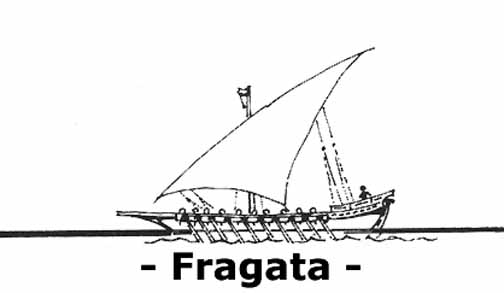
-
A galley is a warship driven by a lanteen sail and sweeps or oars. This
is the smallest of the galleys and a model for larger ships
-
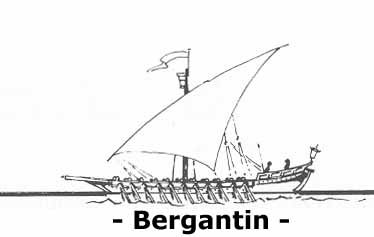
-
Simply a small galley (single deck) meant as a war ship and often used
for exploration. Often has a bow ram and fixed mounted cannons in the bow
and stern. Could carry 20 to 50 soldiers which also had to man the sweeps
(oars). Could have multiple sails.
-
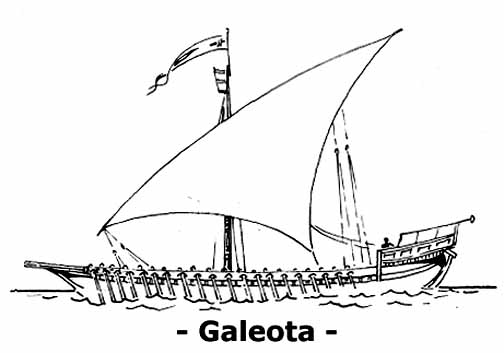
-
This is a larger version of the bergantin with lanteen sail or sails
and oars (sweeps) for propulsion and were in many lengths - up to 200 feet.
They were not normally for ocean travel and were of single decked. Normally
equipped with bow ram and often with a bow and stern straight ahead cannon.
Coastal operations were their primary purpose.
-
-
-
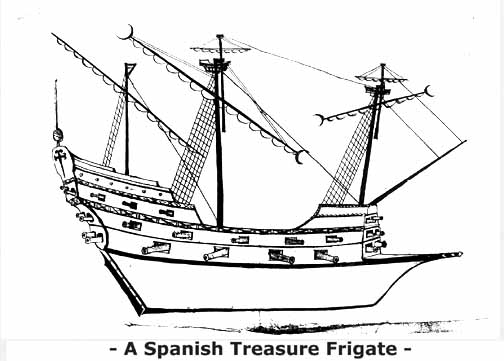
-
A drawing of the Spanish Treasure Frigate Pero Menendez Marquez.
These were especially designed to transport treasure from the New World
to Spain. The Marquez was 104 foot in length and 34 foot wide. She
carried 150 people, 18-pounders on the main deck, 9-pounders on the upper
deck and 3-pounders on the spar deck.
-
-
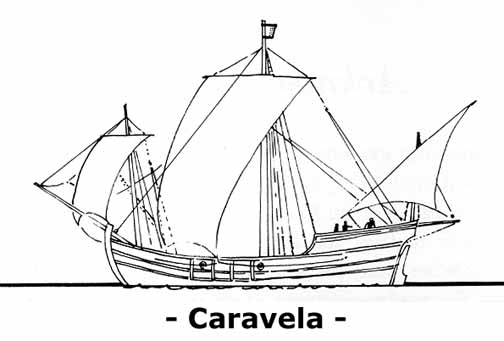
-
Usually multiple sail rigging of square and lanteen design. Larger than
the aforementioned ships, a caravela probably would be between 100 and
150 tons. The foremast was raked (leaned) forward. It could have a forward
and after castle.
-
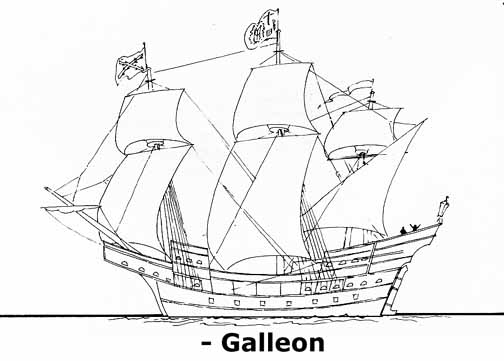
-
The galleon (galeon) is a large armed ship up to 1,000 tons and sometimes
had sweeps for harbor operations. They were often classified as one, two,
three, or four deckers and rigged with square and lanteen sails notably
with top sails. Large galleons could easily carry a crew of 100, plus 15
to 30 gunners and 50 to 100 passengers as well as provisions and cargo.
-
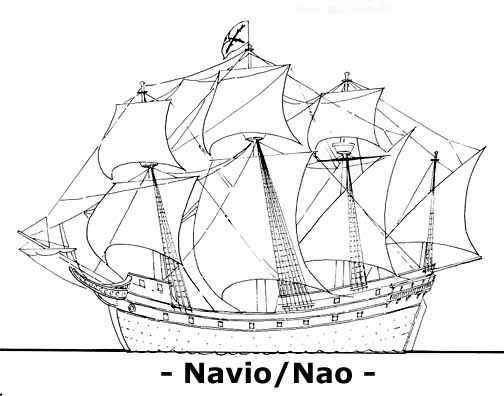
-
The largest is the nao which are broader in beam and usually above
900 tons. Generally, the rigging is square sails and were often solely
merchantmen as opposed to a warship.
-
- - - - - - - - - -
-
Use Back Arrow to return to reading previous page or:
-
Go to Early American Sailing Vessels, Click
HERE.
Go to a quick look-up subject index, Click
HERE.
|







